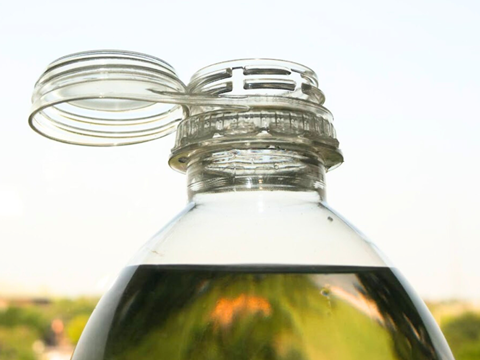
Origin Materials and Royal Hordijk Packaging have teamed up to mass-produce PET bottle caps, aiming to streamline recycling and promote circularity.
Hordijk’s PET extruders will be used to produce extruded sheet, which will then be sent to the company’s facilities in the EU. Their high-speed CapFormer production lines, owned by Origin Materials and operated by Hordijk, will convert the sheets into bottle caps, including tethered caps.
Producing caps from PET is expected to improve their recyclability, especially when they are tethered. They are said to unlock lightweighting capabilities and extend a product’s shelf life while also catering to a market thought to be worth over $65 billion.
Hordijk targets its plastic packaging solutions towards the food, personal care, pharmaceutical, and horticultural sectors in over 25 countries worldwide.
“Hordijk combines expert manufacturing, a robust base of operations in Europe, and significant global reach,” says John Bissell, CEO of Origin Materials. “Further, Hordijk brings PET extruders and extrusion expertise to our operations that can drive capital cost efficiency for CapFormer lines.
“We look forward to producing billions of PET caps together and carrying packaging forward to its next evolution.”
Rik Hennink, CEO at Hordijk, added: “At Hordijk, we believe the future of packaging is circular, and we are committed to innovation and reducing environmental impact. Partnering with Origin to mass produce PET bottlecaps and investing in extrusion to scale production aligns with our mission and roadmap.
“We believe mono-material packaging solutions produced with Origin point toward the future of high-performing, sustainable products.”
The news comes as Aptar Closures launches three tamper-evident and recyclable closures for sports beverages. In doing so, it aims to lightweight bottles, improve product security, and enhance the consumer’s drinking experience.
Meanwhile, Amcor has debuted a recyclable polypropylene closure for household products, providing customers with the option to implement post-consumer recycled content. It is also said to offer child resistance, weight reduction, and shelf appeal.
In another solution, SIG and PulPac are working together to top SIG’s aseptic cartons with paper-based closures made using Dry Molded Fiber technology, setting their sights on a development programme for large-scale production.
If you liked this story, you might also enjoy:
The ultimate guide to the Packaging and Packaging Waste Regulation in 2025
How are the top brands progressing on packaging sustainability?
Everything you need to know about global packaging sustainability regulation in 2025
The key to increasing the use of reusable packaging in supermarkets













No comments yet